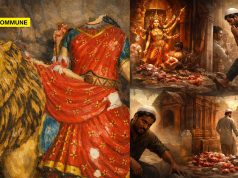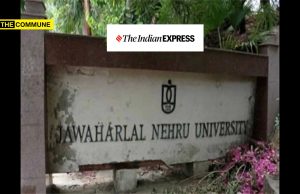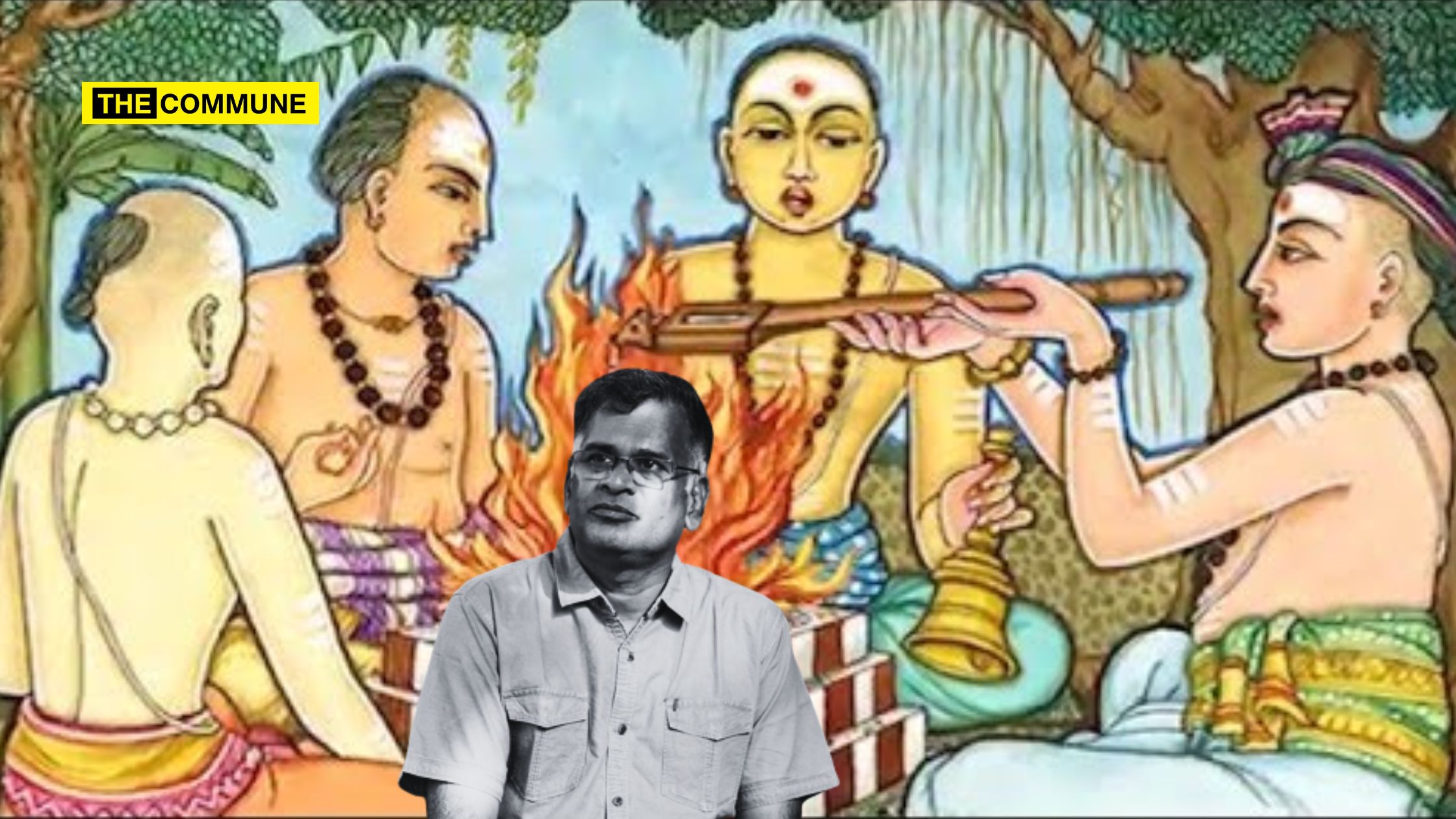
Tamil writer Jeyamohan who had co-written the screenplay and the dialogues for the Ponniyin Selvan duology, has come out in support of Tamil Nadu Chief Minister’s son and DMK Minister Udhayanidhi Stalin, who had equated Sanatana Dharma (aka Hinduism) to mosquitoes and diseases and called for its eradication.
Speaking at the “Eradicate Sanatan Conclave”, DMK Minister Udhayanidhi Stalin said “The title of this conference has been excellently coined. You’ve named it as ‘Abolish Sanatanam Conference’ and not ‘Oppose Sanatanam Conference’, so my best wishes to that.”
“Mosquitoes, dengue, flu, malaria, corona – we should not oppose these things. They’ve to be eradicated completely. Same is the case with Santanam (Hinduism). Our first work should be to abolish/eradicate Sanatanam instead of opposing it. So, my appreciations to you all for giving an apt title to the meeting.“, DMK Minister Udhayanidhi Stalin said.
It is shocking that a writer of calibre and intellect like Jeyamohan would approve of derogating and dehumanizing the native culture of this land and its followers.
“I agree with what Udayanidhi Stalin said because Sanatana Dharma in the South is associated with the Vedic tradition, which has for many centuries been opposed by Tamil Shaivites as well as others, including nastika, Jain and Buddhist traditions that dominated the south for centuries until the Bhakti movement happened“, Jeyamohan was quoted saying in a blog by Ullek NP.
This attempt to divide multiple schools of thought within Hindu Maha Samudhram is nothing new. Our saints, poets and siddhars have left clear literary sources to reaffirm their faith in Vedas, rituals and even call Shiva as an ideal Andhanan (Brạhmin) for winning over his senses.
Let’s start with Sangam Literature.
Purananooru song 15 sung about Pandyan king “Palyaagasaalai Mudhukudmi Peruvazhudi”.
The poet asks: “Which one is greater? The number of yupa stambhas planted to commemorate completion of Vedic sacrifices or the count of enemies you defeated?”
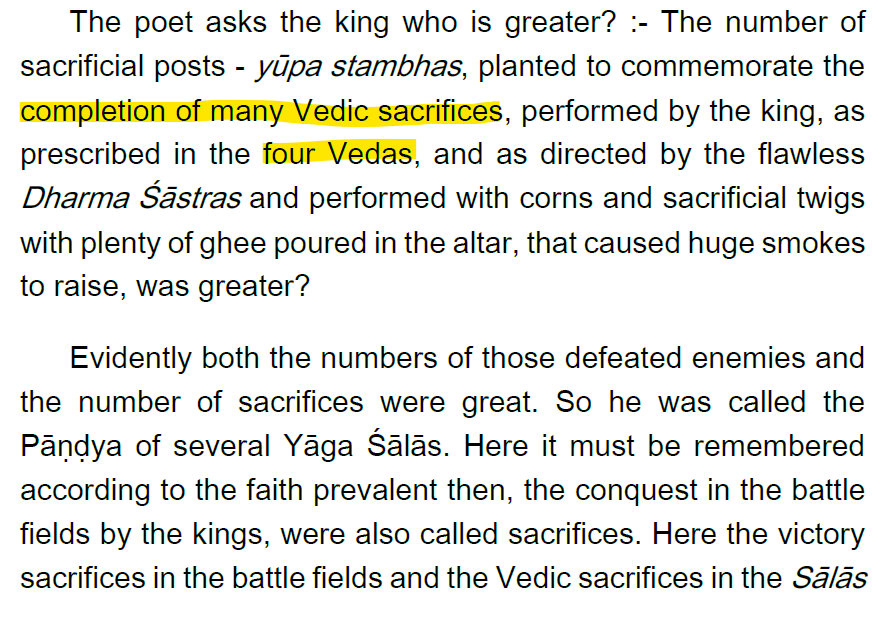
Interestingly, the esteemed Sanskrit poet Kalidasa in his Raguvamsa, (written around first and second century BCE) introduces the Pandya King as the one who is always seen choked with smoke from the sacrificial fires (Avabruda Snanam).
Coins with his name and horse has been found which implies that he conducted the Ashvamedha Yajna.
Again in the same Purananuru song 15, focus on the words – “Narpanuval Naal Vedathu” – meaning – “the flawless four Vedas”.
There is a thurai itself in Purananooru called “Paarpạna Vaagai” which has a song 166 which praises the king as one who doesn’t swerve from the path of Shiva and 4 Vedas with 6 Vedangas.
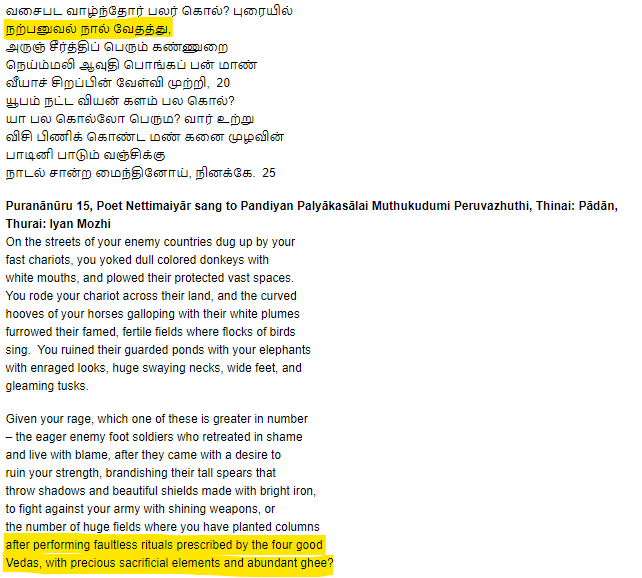
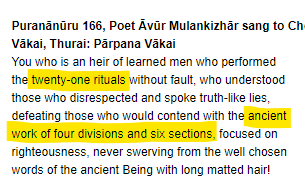
Kaaraikaal Ammaiyaar, the great Shaivite woman sage in her work Thiru Rettai Manimaalai, poem 8, calls Shiva as the one who remains as Vedas, the Veda’s meaning, and its originator. Song 20 of her Arpudha Thiruvandhadhi reflects deep concepts found in Upanishads (Vedanta).
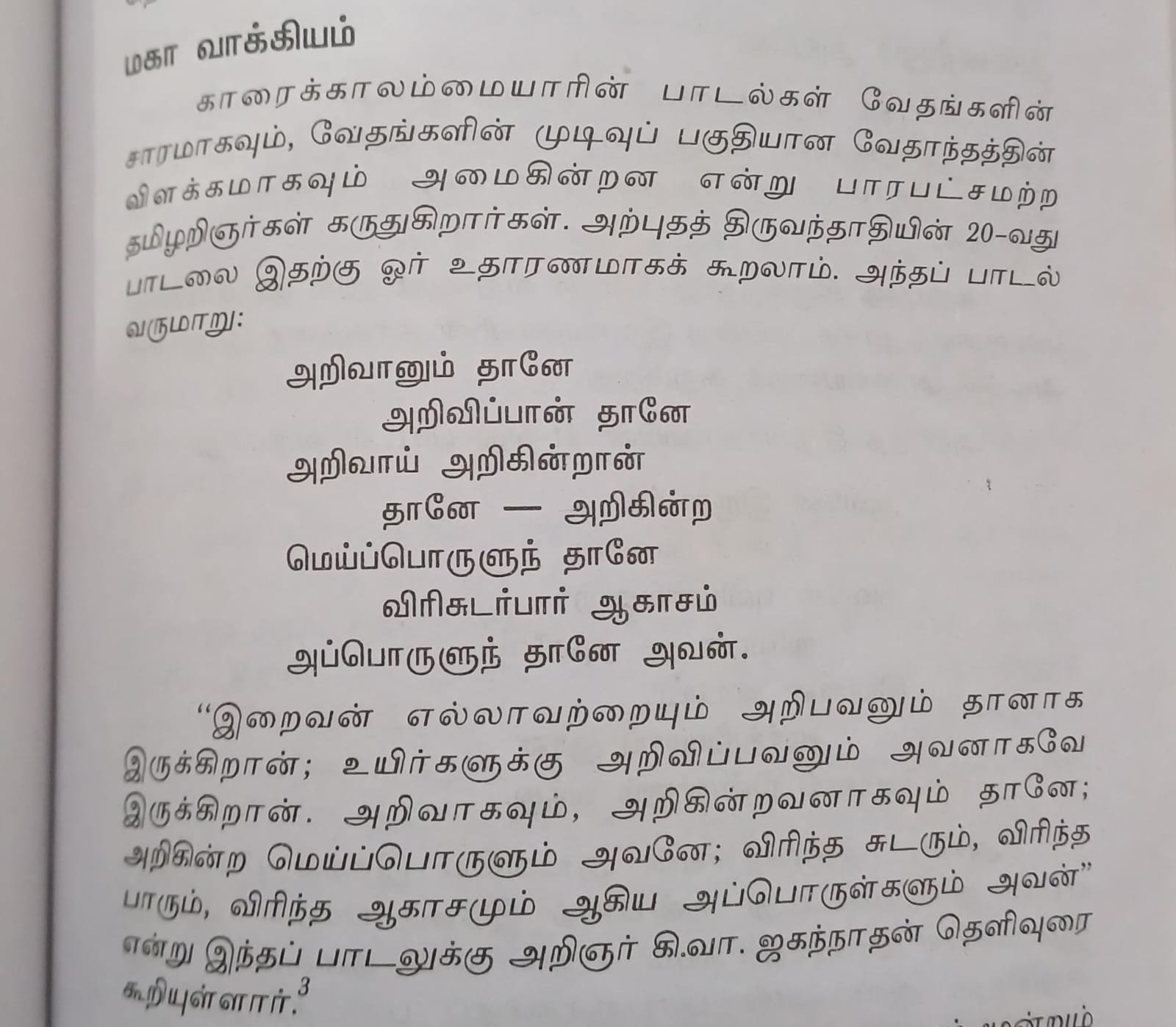
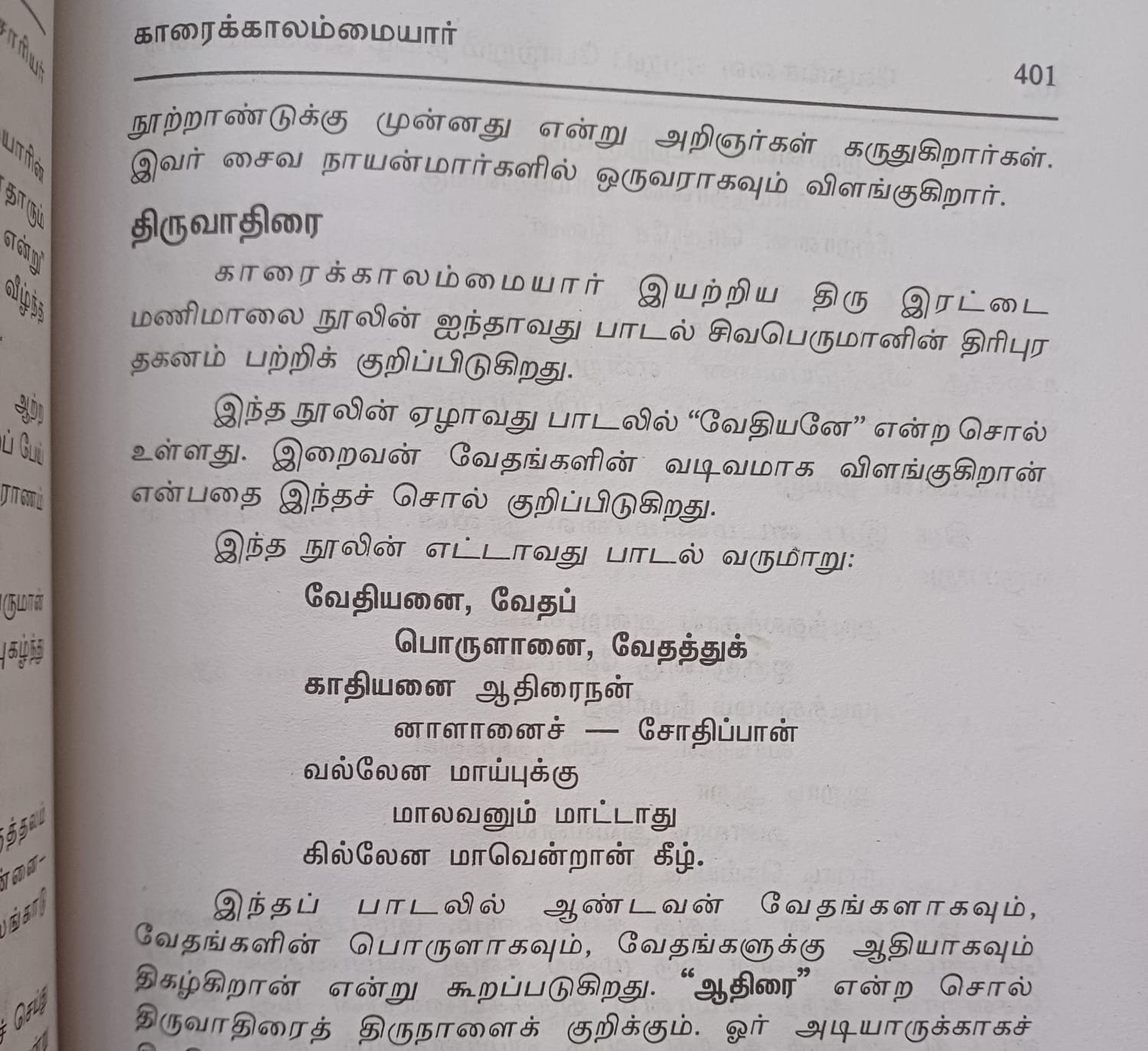
Pause here for a moment to reflect. Would Kaaraikaal Ammayaar – a Nayanmar venerated by Shaivites – with her own temples call Shiva as not just the Vedas – but its meaning and its originator? Would Jeyamohan have the gall to say that Kaaraikal Ammaiyar – a Nayanmaar was anti-Vedic?
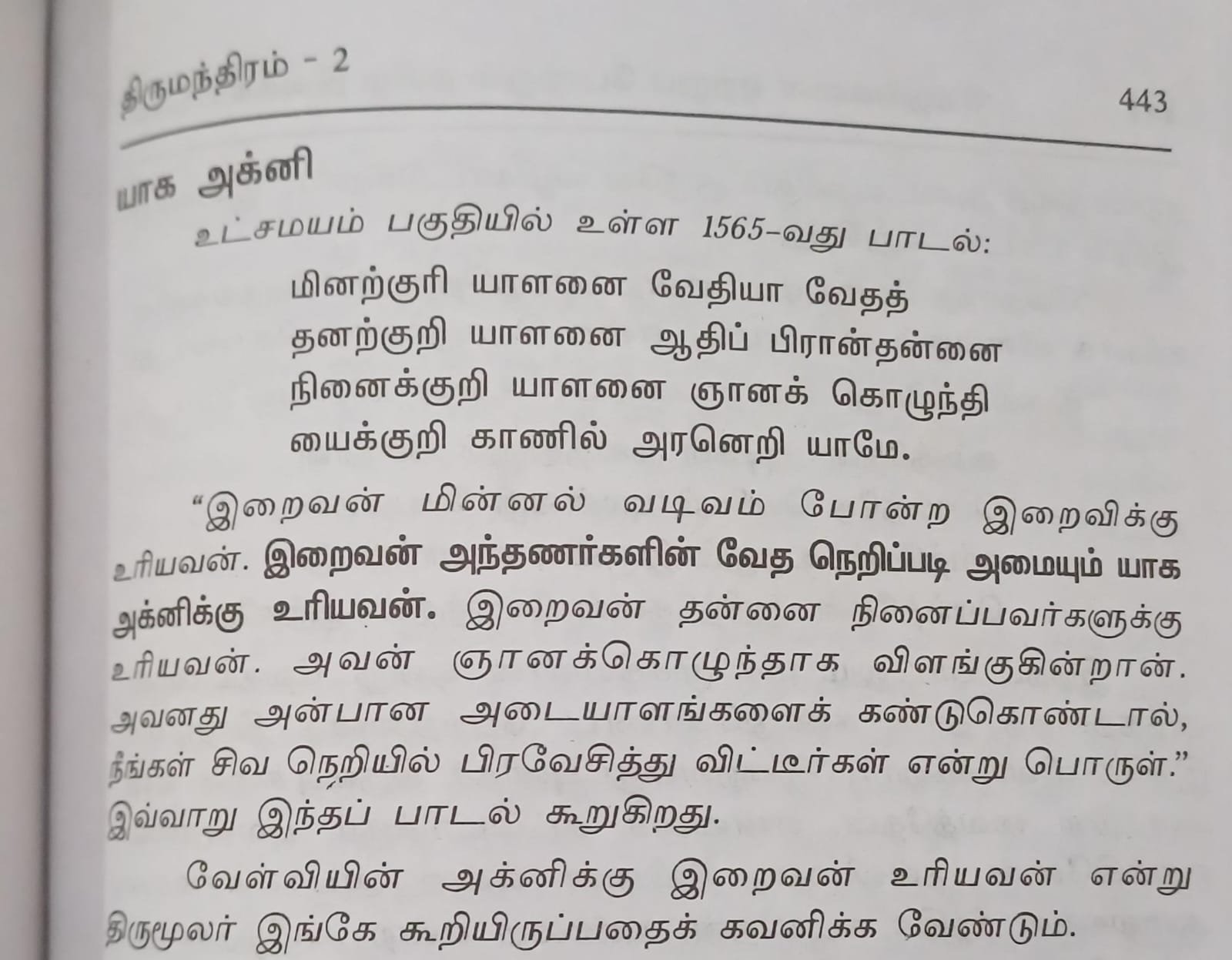
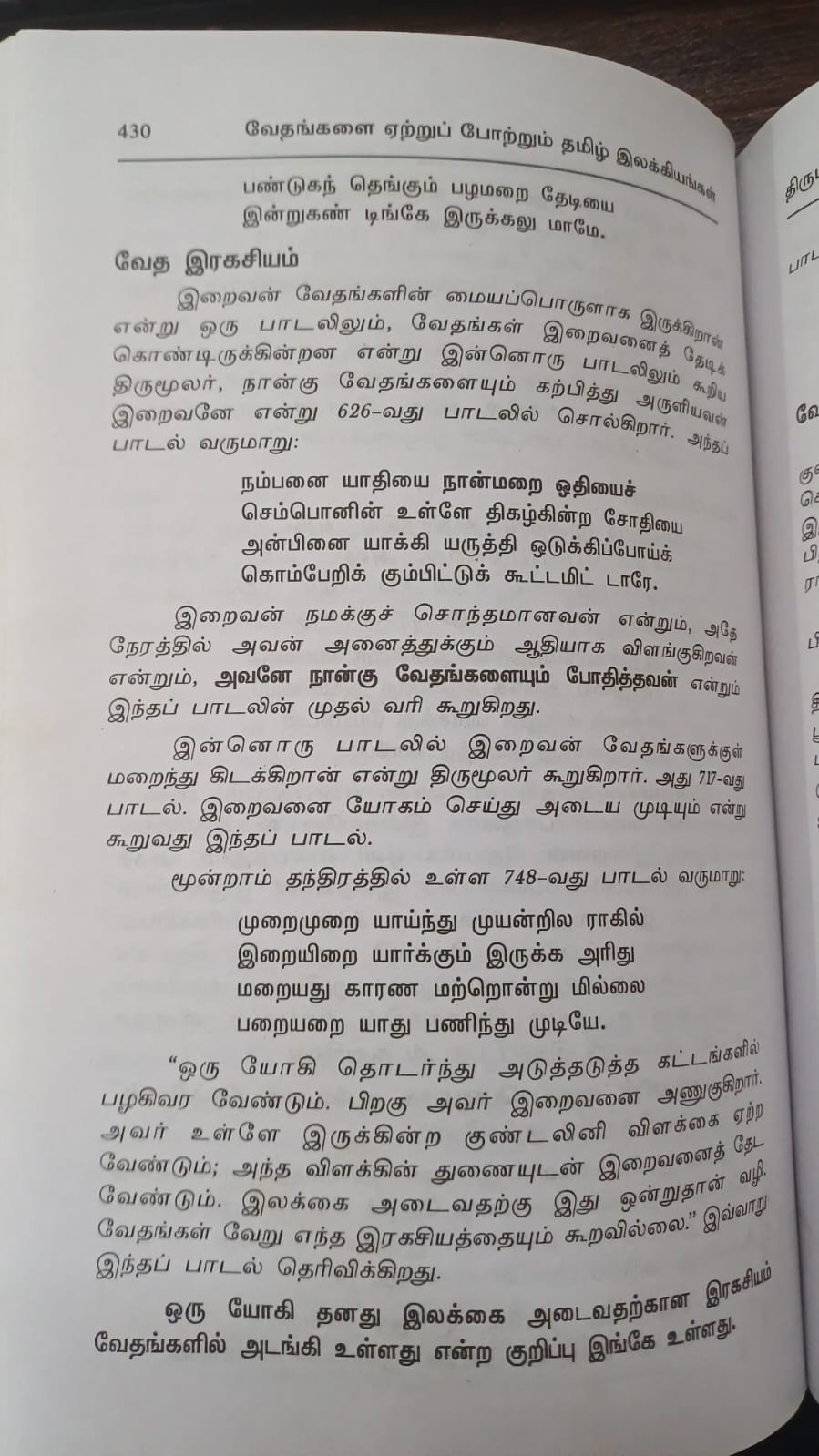
As we saw with Purananooru, even Thirumoolar explicitly mentions the number of Vedas as 4, and the number of Vedangas (parts of Veda) as 6 This shows the prevalence of Vedic tradition in the Tamil speaking land – with a native word for Vedas as “Marai” a pure Tamil word.
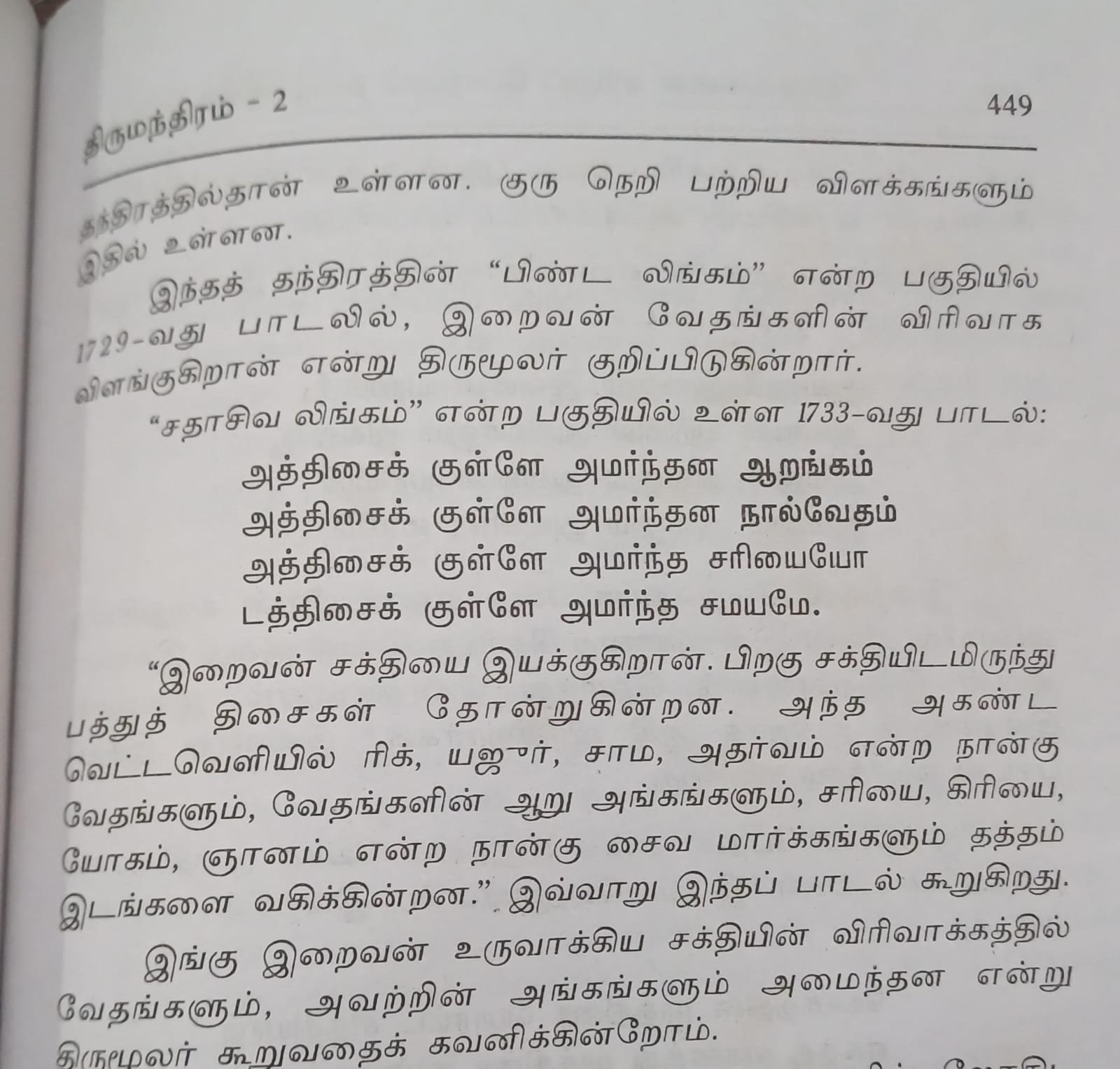
As far as Jeyamohan’s comments on Bhakti literature being anti-Vedic, they are ignorant at best and malicious at worst. Sambandhar’s lines would suffice to debunk this ignorant claim: “The truth of the four Vedas is my Lord’s name – Nama Shivaya” (3.049)
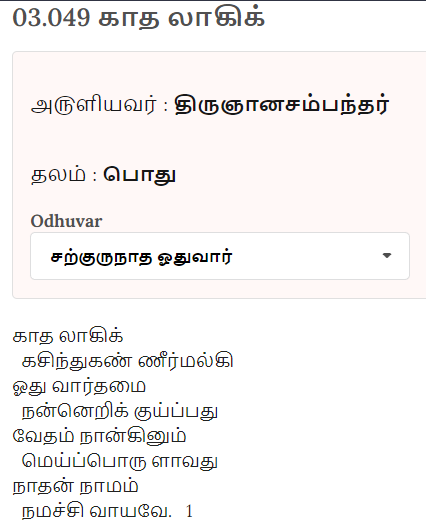
Kirubandha Vaariyar says that Valluvar was a Shaivate based off few Kurals (8 Gunas for Lord & comparison with Andhanan). In that book, Vaariyar Swamin – a Shaivite has listed how all Shaivite saints have hailed Shiva to be the ideal Andhanan (Brahmin) who’s won over all senses.
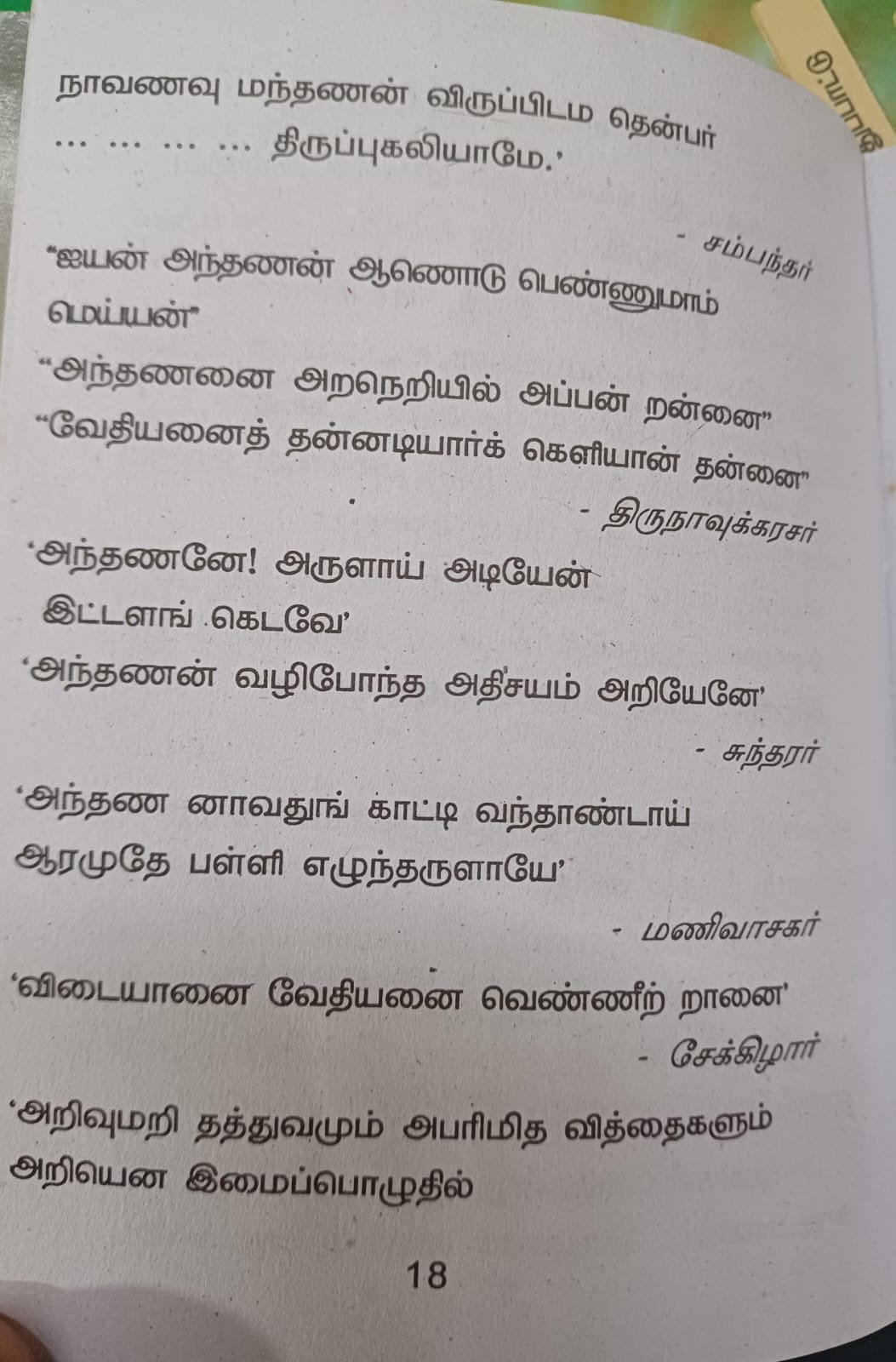
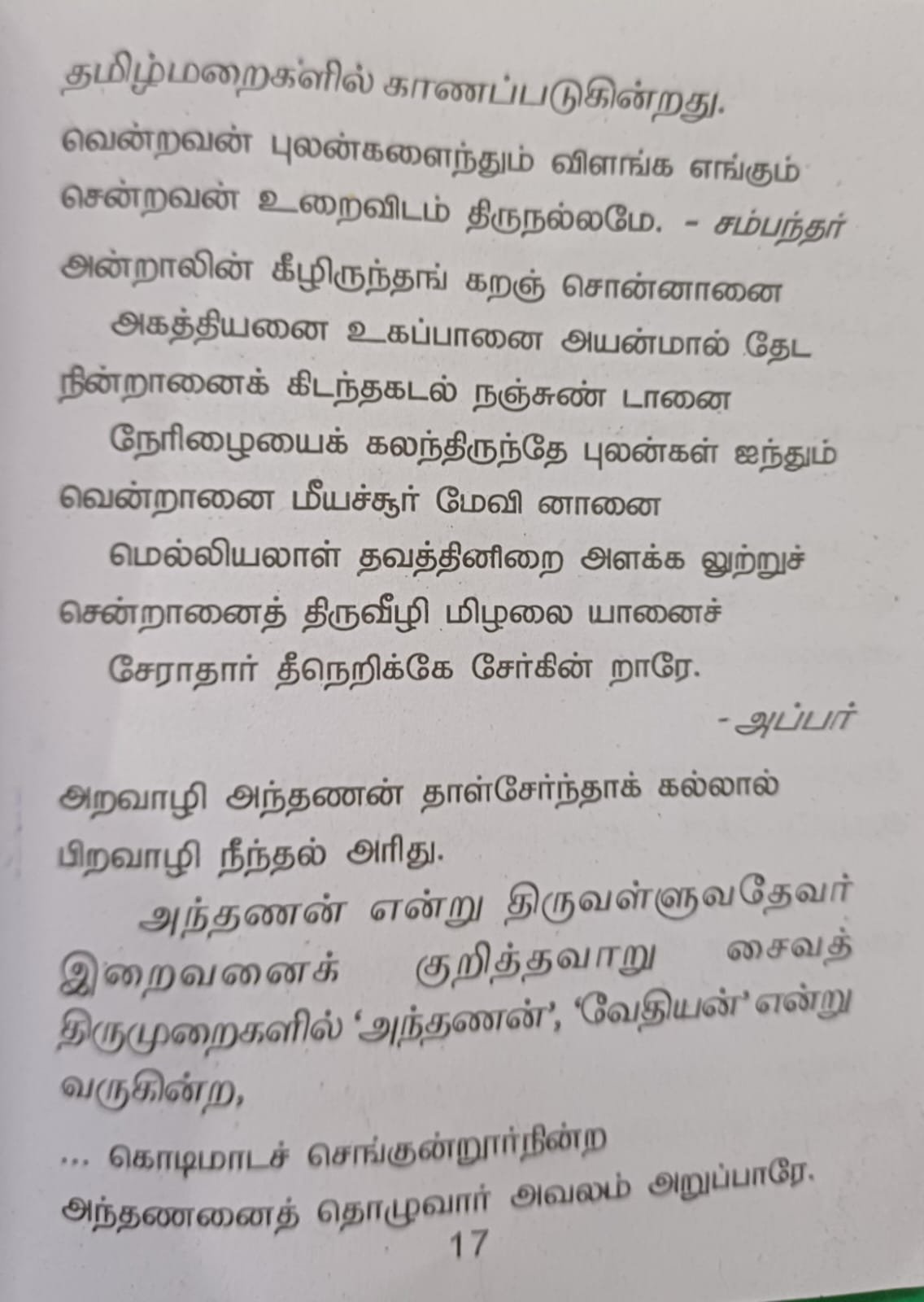
The differences stated by Jeyamohan based off Narayana Guru’s opinions was a single person’s interpretation only. Would Dravidianists accept Cho’s interpretation of Dravidam? Why should an individual’s opinion be stated as if it is an entire Sampradaya’s stand?
Jeyamohan in 2015 had written “I’ll not hesitate to leave Hinďu rèligion if I’m còmpelled to dròp Chriṣt because the Hiñduism I believe in is an ocean that’s capable of accomodating all streams of all spiritual wisdom“.
The same Jeyamohan in 2023 writes that he agrees with what Udhàyanidhi said because many Hindu traditions have always fought the Sànatana Vèdic tradition.
Going by the intellectual Jeyamohan’s own logic, Hiñduism is so magnanimous to give space for Chriṣt, but not for Sànatana Vèdic tradition? Sanatàna Dhàrma is Hinduism, it is indeed unfortunate that JeMo chooses to distinguish the two by his own convenient definitions. Hinduism, that is Sanatàna Dharma.
In an attempt to appease politicians or be provocative, this artificial chasm between “Vedic traditions” and “Tamil traditions” has been manufactured. Our Bhakti movements, Shaivite Nayanmars, Vaishnaivite Aazhvaars all are different schools of thought of the same Hindu Maha Samudhram.
Such divisive tactics won’t sell in the land of Vedas.
Rig Veda says “There is no high/low difference amongst you. You are all brothers”
Yajur Veda says: “Cooperate and protect and help one another” Atharva Veda says: “Unite towards a goal and speak only useful words”
Om!
Sources:
1. https://sangamtranslationsbyvaidehi.com/ettuthokai-purananuru-1-200/
2. Tamilnadu – a Land of Vedas by Dr. R. Nagaswamy
3. Vedangalai Etru Potrum Tamil Ilakiyangal by KC Lakshminarayanan
4. Thirukural Shaiva Noola by Kirubanandha Vaariyaar
5. Verukathakadha Brạhmaniyam by Cho
(This article based on the X thread by Tamil Labs 2.0)
Tamil Labs provide high quality Tamil Content written interestingly in English.
Click here to subscribe to The Commune on Telegram and get the best stories of the day delivered to you personally.



